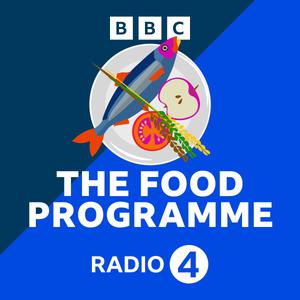
The Food Programme
BBC Radio 4
Investigating every aspect of the food we eat
- 42 minutes 2 secondsThe secrets of sport food
From the explosion in sport food and drink, to the food diaries and routines of some of the UK’s top athletes, Leyla Kazim investigates food in the world of sport today.
How do elite sport nutritionists prep their athletes and what can we learn from them? What should we eat for energy? What’s the deal with protein? We hear from sport stars in rugby, netball, triathlon and football, to find out.
For an everyday athlete without a performance nutritionist, eating for sport can be confusing. Over a pre workout lunch, sport nutritionist Matt Gardner answers some Food Programme listener questions and shares stories from his days working with elite rugby players and extreme adventurers.
But sport food is no longer just the domain of gym cafes and sport clubs. There has been an explosion of energy drinks and 'hi protein' bars sold anywhere from Post Office counters to the check outs of sport fashion shops. Leyla sends three young food activists, who have been looking into this issue, out onto the streets of Reading to see what they can find on sale. Producer Nina Pullman takes their findings to professor of nutrition and metabolism at the University of Bath, Javier Gonzalez, who looks at the ingredients in more detail.
To explore the bigger links between sport, public health and food marketing, next we drop in on public health policy consultant, Dan Hunt, who explains the appeal of sport from a commercial point of view. Finally, Leyla reflects on how food works as fuel, ahead of the summer of sport to come.
Produced by Nina Pullman for BBC Audio in Bristol.
26 April 2024, 10:00 am - 42 minutes 59 secondsBrexit's Import Controls
Physical checks will soon be carried out on some foods being imported from the EU, but how will it impact the rest of the UK's food supplies? Jaega Wise investigates.
19 April 2024, 10:00 am - 41 minutes 49 secondsA Celebration of the Birthday Cake
Jaega Wise delves into the history, traditions and culture surrounding the birthday cake, meeting bespoke baker Adam Cox, and attending a traditional Mexican "cake smash" along the way. She'll also find out what happens when a cake historian takes on the task of baking a traditional roman-style cake, and pick up some tips for the best birthday bakes from none other than Dame Mary Berry. And there's a very special delivery for one 13 year old girl from a community network of bakers trying to ensure that absolutely all children get a birthday cake.
Produced by Tory Pope for BBC Audio in Bristol
12 April 2024, 10:00 am - 41 minutes 57 secondsCooking at home with Gary Lineker
Footballing legend, broadcaster and our host for lunch… Gary Lineker makes his famous 'gambas al ajillo' for Leyla Kazim at his home as she hears how he learnt to cook nine years ago and never looked back. They also discuss food memories from his professional football career, from playing and eating around the world to unorthodox pre-match lunches, Spanish-style. Along the way, she hears stories from Gary’s friends and family as a little-known side to Gary’s character as a newly passionate cook and self-confessed foodie gradually takes shape.
Produced by Nina Pullman for BBC Audio in Bristol.
5 April 2024, 10:00 am - 25 minutes 33 secondsLamb Season
Although chocolate eggs and Hot Cross buns take centre stage at Easter, millions of people also sit down to share a joint of lamb to celebrate. In this episode, Sheila Dillon finds out more about the tradition for eating lamb at Easter with Welsh food writer Carwyn Graves, and hears how despite its prominence on Easter tables, the timing of lamb production doesn't always fit with when the festival falls on the calendar. So should we be considering eating other types of sheep meat at this time of year? Sheila speaks to sheep farmer Steve Lewis from Pembrokeshire Lamb whose lambs are being born at this time of year, and is currently selling customers last season lamb and hogget. She also visits Spanish restaurant, Asador 44 in Cardiff to learn from chef Owen Morgan how to prepare older cuts of sheep meat, including 8 year old mutton from The Cornwall Project.
Presented by Sheila Dillon Produced for BBC Audio in Bristol by Natalie Donovan
31 March 2024, 11:30 am - 27 minutes 51 secondsStouts and Porters: How dark beers became cool
Stouts and porters, dark malty beers maybe used to have a reputation of being a bit stuffy but there has been a recent trend of these drinks growing in popularity.
Guinness, the biggest player in the market, has seen a big increase in sales, for a period being the bests selling pint in pubs for the first time. There’s been a big interest in it from young people, there is a whole genre of social media influencers comparing pints and even Kim Kardashian was photographed with one in London last St Patricks day.
In this programme, Jimi Famurewa looks at how a drink that is so ubiquitous and established becomes a cool.
Jimi goes to the wildly popular Devonshire Arms to meet Oisin Rogers and drink the arguably best pint of Guinness in London. The story of dark beer starts with porter in London and Jimi talks to beer writer Laura Hadland about the history of porter and stouts between the UK and Irish capitals.
Adding nitrogen to stout and porter is a huge part of Guinness’s success. Jimi visits Anspach and Hobday, brewers who are taking on Guinness with their own nitro porter, London Black.
Jimi also look at the history of stout and porter in West Africa with Eko brewery who are taking inspiration from the continent including the Guinness brewed in Nigeria.
Social media is a huge part of the interest in Guinness. Jimi sits down with a pint to talk to Ian Ryan who runs the shitlondonguinness Instagram page and has written a book One Man's Search for the Perfect Pint of Guinness, who is credited in having a big part in this trend.
Produced in Bristol by Sam Grist
24 March 2024, 12:30 pm - 28 minutes 3 secondsThe Plant-Based Diet Boom: How is it changing food culture?
The last decade has seen an explosion in the trend of plant-based eating, from the growth of plant-based products in supermarkets and vegan options on menus, to celebrities and diet influencers making plant-based cool on social media. In this programme, Leyla Kazim explores some of the cultural and social impacts from the plant-based diet trend, including the rise of the flexitarian way of eating, the impact on the vegan movement, and the evolution of the diet culture wars in the media.
Presented by Leyla Kazim and produced by Sophie Anton for BBC Audio in Bristol
17 March 2024, 1:09 pm - 28 minutes 40 secondsThe herb and spice scam?
What’s really in your spice rack? In this exclusive investigation by The Food Programme, Jaega Wise investigates the authenticity of spices sold by a number of high street, online and health food chains. Using brand new technology outside of the lab for the first time, she will test herbs and spices from some of the biggest household names and retailers, including Tesco, Sainsbury’s, Asda, Amazon and more. Plus, we hear from leading experts on the UK’s food defence frontline to find out just how challenging it is to detect fraud and police this lucrative area. Produced by Nina Pullman for BBC Audio in Bristol.
10 March 2024, 12:30 pm - 29 minutes 27 secondsFeeding Norfolk
A message from Delia Smith takes the Food Programme team to Norfolk to see how a network of social supermarkets is helping people out of food poverty.
Nourishing Norfolk, is a project linking a large number of smaller shops, or food hubs around the county. The shops use the "social supermarket" model, providing free fruit and vegetables and cut price food and many other essentials including cleaning and hygiene products, and smokeless coal.
During the team's tour, they hear how being linked has given the hubs more buying power, and they have been able to team up with more local businesses who are able to help - by offering warehouse space, larger scale donations and even logistics.
The hub volunteers then have more time to do what they are good at; offering support, guidance and community to those who need it.
Since the shops are all independently run, they are also able to try out and develop ways that can help with the specific problems faced by people in poverty in their area, which has included the setting up of a mobile food hub.
Delia wrote how she had been blown away by the work that is happening there - where people are not only being provided with affordable food, but also help and assistance at all levels.
Presented by Sheila Dillon Produced in Bristol for BBC Audio by Natalie Donovan
4 March 2024, 10:30 am - 28 minutesThe power of poems to connect us to food
Getting people to engage with food and ideas for agricultural change can be really difficult - but that’s the hope of a major new arts project called We Feed The UK. Farmers, poets and photographers have collaborated to tell ten stories to celebrate custodians of land, seed, soil and sea from all corners of the country. The project is being coordinated by the charity The Gaia Foundation – with a mission to elevate stories of farms and food producers that show positive solutions to climate change, the biodiversity crisis and social justice in the food system.
Jimi Famurewa joins conversations between farmers, food producers and poets, who are collaborating as a part of the project, to hear a selection of these poems and ask how poetry can help the public think twice about how food is grown.
Presented by Jimi Famurewa and produced by Sophie Anton for BBC Audio in Bristol
26 February 2024, 8:57 am - 28 minutes 22 secondsA Bitter Taste?
Appetite suppressant, glucose control and inflammation antidote... The scientific research around the power of bitter foods may sound far-fetched. But new studies are continuing to add to our knowledge of what this food group, disliked by many, can do for our health. To find out more, Leyla Kazim speaks to Italian taste scientist and self-confessed ‘bitter enthusiast’, Gabriella Morini, who has been studying this area since the eighties.
Can, and should, we learn to love bitter? Leyla spends a morning cooking with chef and MasterChef finalist Alexina Anatole, whose new book Bitter is on a mission to help us do just that. After cooking with bitter greens, Leyla tracks their journey from plate back to field. While salad might seem an unseasonal thing to be eating in winter, British soils and temperature are actually well suited to growing a huge variety of winter salads, notable for their fresh taste as well as their resilience. She meets a specialist mixed leaf salad grower and hears how choosing these varieties could help reduce our reliance on Spanish salad, where climate change is making winter growing increasingly erratic.
In many ways, understanding the power of bitter foods is regaining knowledge that was used by our ancestors; while bitter herbs and leaves are still used in traditional medicine in Indigenous cultures across the world. Leyla speaks to food historian Dr Neil Buttery to retrace some of the history of bitter flavours. Finally, calling in on nutritionist Dr Lucy Williamson, Leyla hears tips on how to apply our more modern day understanding of bitter to everyday meals and lifestyles.
From old folklore to new scientific research, and from cooking to growing, Leyla discovers how there is plenty more to bitter flavours than might well meet the eye, or the taste bud.
Presented by Leyla Kazim. Produced by Nina Pullman for BBC Audio in Bristol.
18 February 2024, 12:30 pm - More Episodes? Get the App
Your feedback is valuable to us. Should you encounter any bugs, glitches, lack of functionality or other problems, please email us on [email protected] or join Moon.FM Telegram Group where you can talk directly to the dev team who are happy to answer any queries.
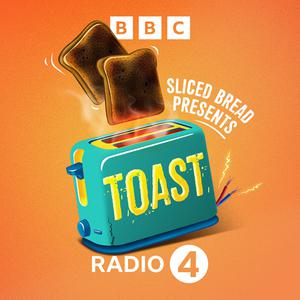 Sliced Bread
Sliced Bread
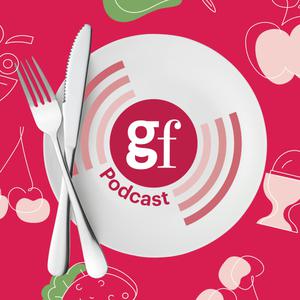 BBC Good Food
BBC Good Food
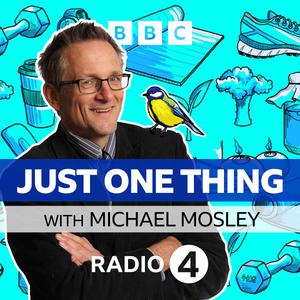 Just One Thing - with Michael Mosley
Just One Thing - with Michael Mosley
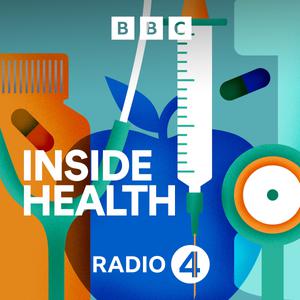 Inside Health
Inside Health
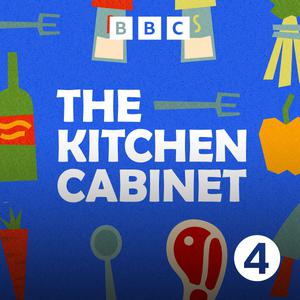 The Kitchen Cabinet
The Kitchen Cabinet
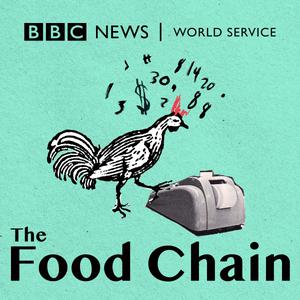 The Food Chain
The Food Chain